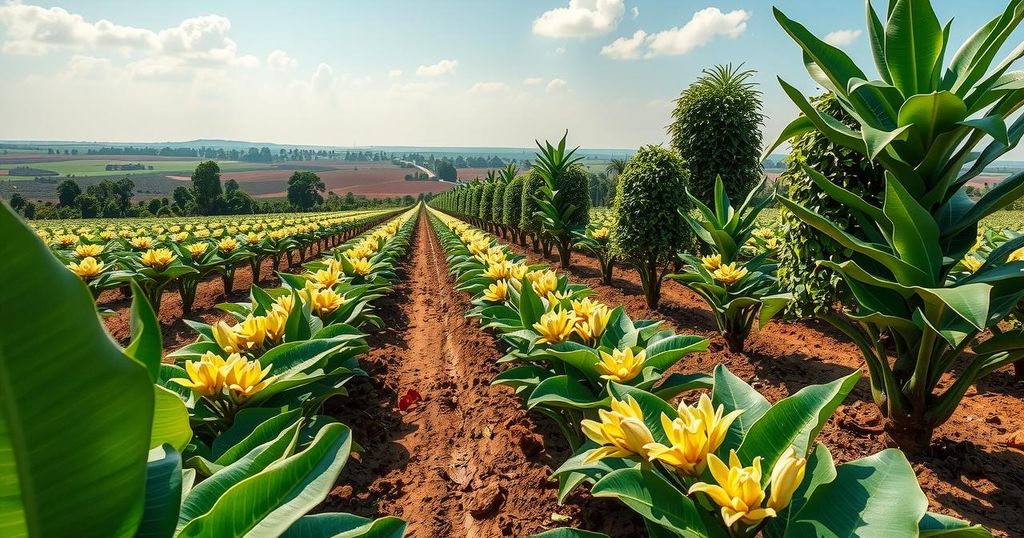Madagascar’s vanilla farmers are struggling with climate change, facing severe impacts such as drought and disease while being slow to adapt. A recent study highlights their challenges and limited responses to changing conditions. Financial constraints and a lack of resources hinder adaptive practices, despite policies being needed to support vulnerable farmers. The ongoing research aims to expand understanding of these issues across the region.
Farmers in Madagascar’s vanilla farming region are confronting significant challenges due to climate change, including alterations in temperature and precipitation. A recent study reveals that these farmers, who largely depend on small plots for crops like rice, bananas, and vanilla, are already struggling to sustain their families. Despite their awareness of worsening future conditions, few are adapting their practices to mitigate these changes.
Interviews conducted in 2023 within the villages of Sarahandrano and Mandena, located approximately 50 kilometers apart, indicate that approximately 75% of local farmers have observed diminishing water sources or are spending less time on their fields due to extreme weather events. Additionally, increases in pest populations and related health issues such as malaria and diarrhea have been reported by respondents.
Surprisingly, only 20% of these farmers are employing adaptive strategies like utilizing fertilizers or adjusting their planting schedules. Tyler Barrett, a Ph.D. candidate at Duke University, noted that this rate of adaptation is significantly lower than what other countries’ studies have revealed. Men and farmers with valuable assets are more likely to change their practices, implying that financial hurdles hinder broader adaptation efforts.
The majority of Madagascar’s population lives below the poverty line, which exacerbates the issue. Randall Kramer, a professor emeritus at Duke, emphasized that many adaptive practices require additional labor or materials that these farmers cannot afford. He advocates for policy initiatives that could alleviate these costs, particularly benefiting those in greater need.
Encouragingly, researchers suggest options like incorporating fruit trees into existing fields or farming fish in flooded rice paddies. These practices could enhance food security while aiding fertilization and pest management. However, Madagascar’s farmers already contend with natural disasters, such as cyclones, that threaten their livelihoods and ability to transport goods to market, particularly during the rainy season.
The plight of farmers is not limited to northeast Madagascar; regions like Andringitra are also witnessing adverse climate impacts. Historical assessments indicate warming trends and declining precipitation over the last 50 years nationwide. Kramer highlighted the compounded vulnerability of small-scale farmers, who are responsible for one-third of global food production.
Looking ahead, the research team is expanding its study to include 34 additional villages to further investigate these trends. The initial findings signal an urgent need for farmers to adapt to climate change challenges. As Kramer poignantly stated, these farmers must navigate increased uncertainty, as their yearly success directly correlates with their families’ food security.
In summary, Madagascar’s vanilla farmers are facing heightened challenges due to climate change, with many reporting severe effects on their livelihoods. Despite recognizing the need for adaptation, the majority are not implementing necessary changes, primarily due to financial constraints. The need for supportive policies and innovative farming practices is critical to enhance these farmers’ resilience. As researchers continue to explore adaptability across a broader region, prompt action is essential for safeguarding food security in the face of ongoing climate shifts.
Original Source: today.duke.edu




